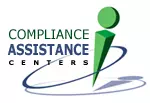Pharmaceutical Waste Reduction Strategies
Maximize shelf life
Drugs are stored at appropriate temperature, light level, moisture, etc. such that their shelf-life is prolonged or maximized. Or a facility may switch to premixed products, which have a longer shelf life than reconstituted products.
Reduces Amount: YesReduces Toxicity: No
Examples of Applying this Strategy
| Generic Drug: Succinylcholine Chloride
Succinylcholine was identified as a waste reduction opportunity for the Mercy Health System in Janesville Wisconsin. The useful shelf-life of this drug can be extended by refrigeration. Proprietary Drug(s): Anectine, Quelicin For more information: UW Extension SHWEC |
| Generic Drug: Propofol
Replacing traditional propofol medication with 28-day propofol in veterinary clinics will reduce anesthesic waste. Traditional propofol has a shelf life of 48 hours maximum once opened. The 28-day propofol contains a benzyl alcohol preservative that allows a shelf life of 28 days. Proprietary Drug(s): Diprivan, Propofol, Propoven
|



